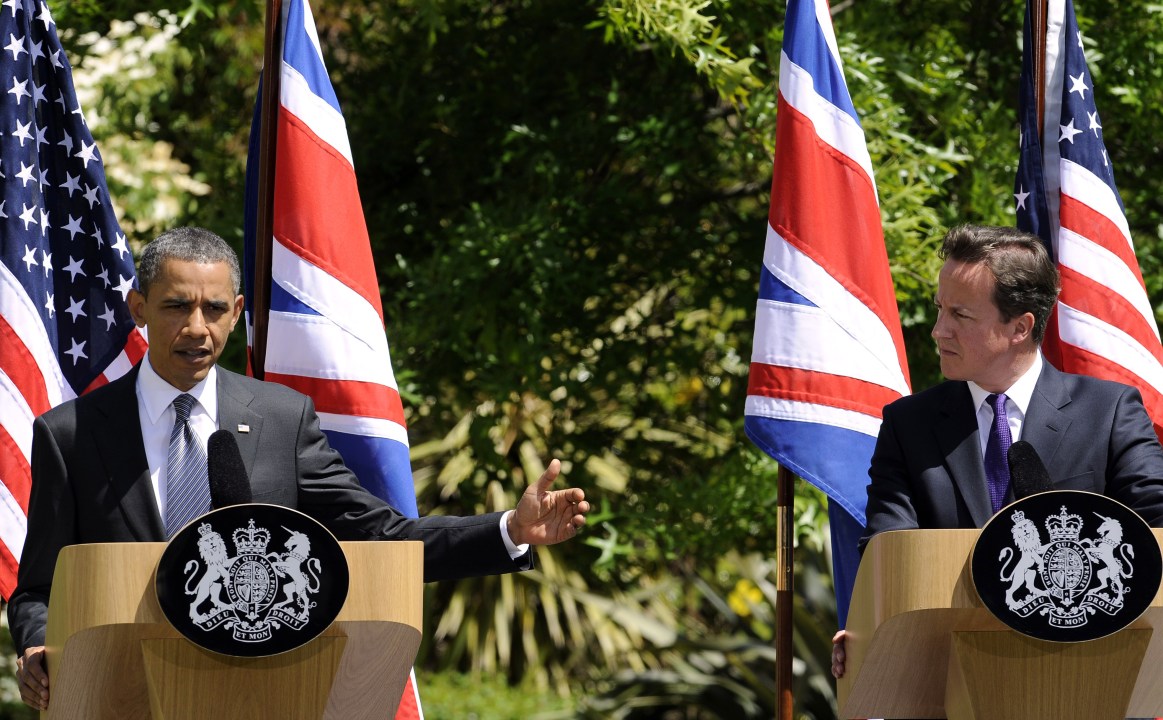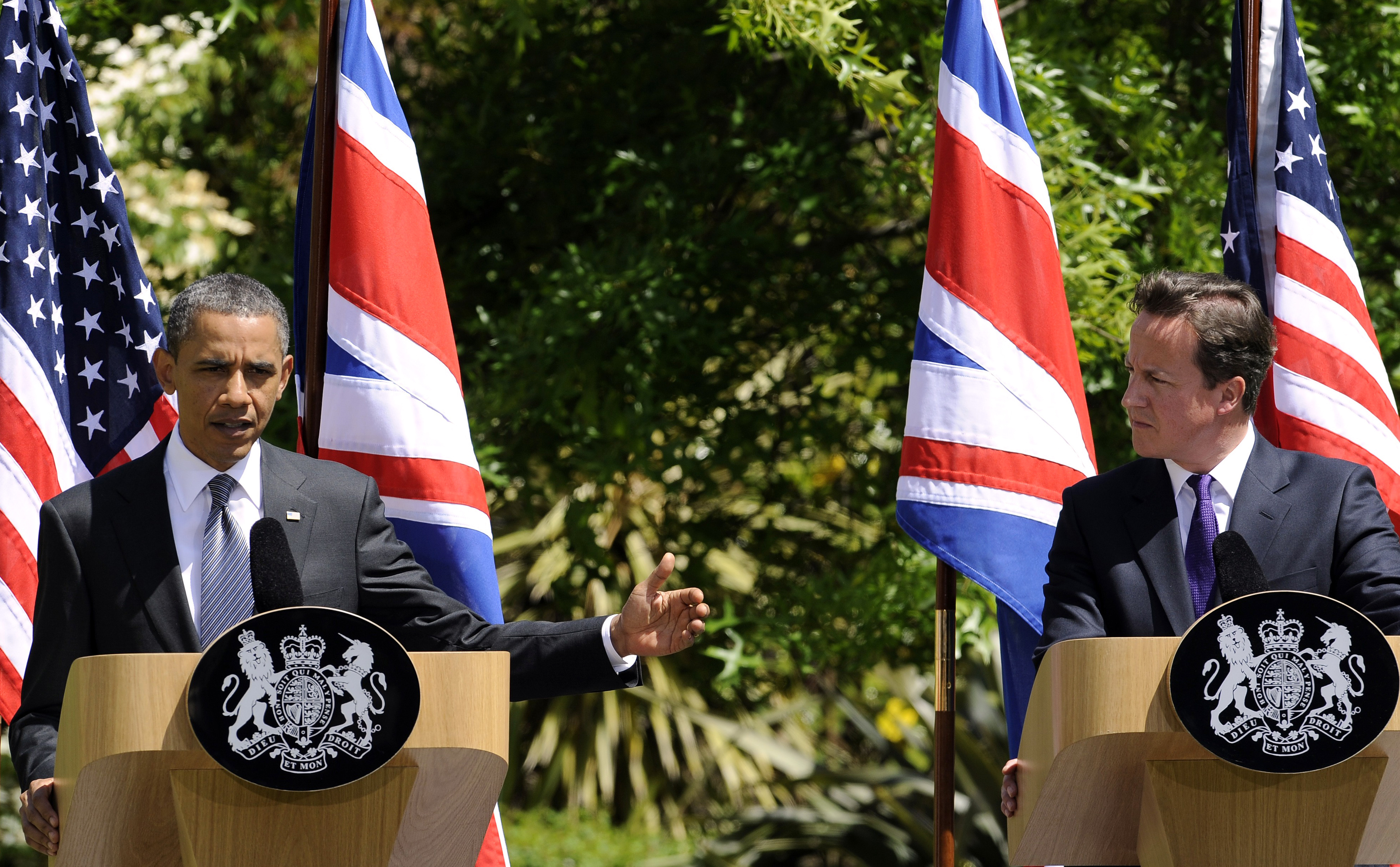
And the Word of the Day is “we”. Both David Cameron and Barack Obama deployed it liberally in their joint press conference just now, as they ran through all the mutual pleasantries and backslapping that attends these events. “We have discussed the two things we care about the most,” flushed Cameron, “getting our people jobs, and keeping our people safe.” From there on in it was first name terms — “thank you, David” — and claims about the strength of our two countries’ special, essential, unique relationship, etc. With the sun blazing down on the garden of Lancaster House, I’m sure the photos will turn out nice.
Cameron appeared to be the more eager of the two men, however. He backed Obama vigorously when it came to foreign policy — even describing the President’s controversial plan for peace between Israel and the Palestinian territories as “bold, visionary … it sets out the steps that need to be taken.” And then he waxed extensive about the “similar” domestic agenda of both governments. “We didn’t come into public service to cut public spending,” said Cameron of himself and Obama, “but … we’re both making sure that, in the second half of this decade, debt ratios will be falling.”
In his speech, Obama was happy to endorse Cameron’s message on matters international — including condemnation for the Syrian and Libyan regimes — but was far more reluctant on the domestic front. It was only after a question from ITV’s Tom Bradby that the US President mentioned the public finances at all, and even then he was cagey. “Each country is different,” he wavered, before stretching the same sentiment across several minutes of airtime. He finally struck on a shared position — “David and I want to arrive at the same point … we don’t want to mortgage our futures” — but only the most blinkered Tory would describe it as an endorsement.
Not that an endorsement from the President really matters, of course. But what we got was still suggestive of the manner in which politicians approach spending cuts. If Obama was being completely upfront, he might have admitted that his plan is actually to cut faster and deeper than Osborne. (Although our deficit will, in the end, fall further than America’s.) As it was, it suited the President to sound more restrained than that today.







Comments